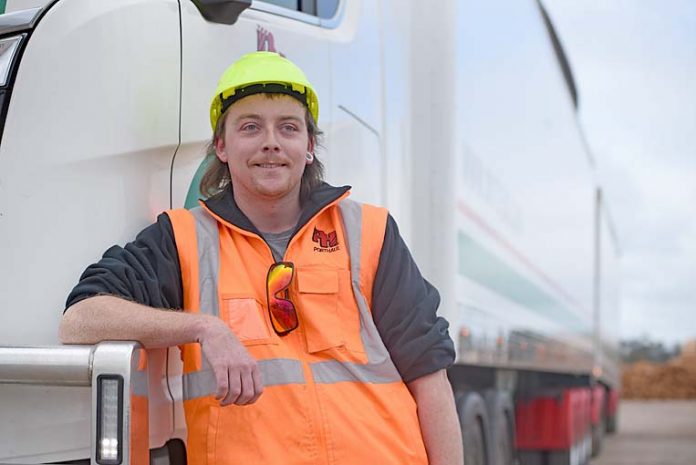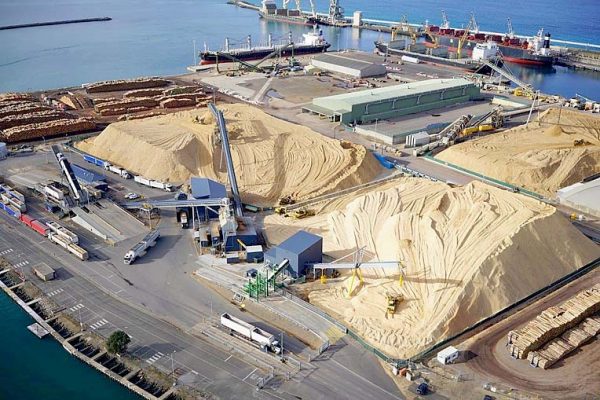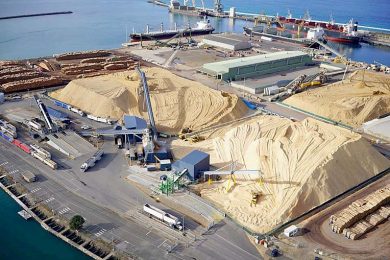

ONE of the world’s largest radiata pine woodchip exporters will use road trains to transport their raw product to the Portland, which is expected to improve safety for regional motorists.
Timberlink – which has started a $90m expansion of its Tarpeena site – has a signed a deal to have the latest A-double trucks replace existing B-doubles to transport woodchip to the Portland dock.
The move comes as Timberlink also reveals plans to grow its woodchip exports once the upgrade to the Tarpeena processing site is complete.
The new agreement with Portland-based company Porthaul will see three 33 metre long trucks regularly on the route from Tarpeena to Portland, which is a 285km round trip.
Timberlink national logistics manager Phil Doyle said the deal was a step forward in safety and lowering emissions.
“This will allow us to carry 35pc more load per trip to Portland, taking trucks off local roads, lowering our emissions while securing these jobs,” Mr Doyle said.
He said the new trucks would deliver an estimated 15pc reduction in emissions per tonne of woodchip carried.
“The larger sized truck will also provide us with the flexibility we need as the expansion is completed,” Mr Doyle said.
“The trucks are a significant safety improvement as well and are the maximum size accepted at the port.”

Mr Doyle said the technology fitted in the trucks meant they were significantly safer for both drivers and motorists.
“There will be new GPS and engine telematics technology to track vehicle status and tyre monitoring, this will be accompanied by a speed limiter,” he said.
“For residents the vehicles are fitted with retarders, instead of engine brakes, to reduce engine braking noise impact in urban areas.
“There will be improved safety features for the drivers, with the trailers having a ‘walking floor’ design to make unloading in high winds safer.”
He said the new A-double trucks were also the maximum size allowed at the port.
Meanwhile, Mr Doyle said woodchip was a key export for the Green Triangle area with a significant portion heading to Japan to be used for paper products.
“Timberlink’s woodchip is made from 100pc renewable plantation pine, soaking up carbon dioxide while creating jobs for the region,” Mr Doyle said.
“The chip is all 100pc renewable from plantations and much of it ends up in Japan and so it is a key export for the region.”
Porthaul general manager James Williamson welcomed the new partnership with Timberlink.
Explaining there were “very few” of these types of vehicles operating on the region’s roads, he said these new trucks would improve efficiency, safety and reduce the number of trucks on the road network.
He said these heavy vehicles would also reduce the damage on the regional roads given their weight was distributed across all of its axles.
These trucks will ferry woodchip by using the route from Tarpeena to Dartmoor and then on to Portland.
He said the company did not use Nelson Road given the state of the road and the high number of tourist traffic.
“We do not allow our trucks on that road, it is too dangerous,” the company spokesperson said.
Mr Williamson said innovative technology had been fitted in these vehicles, which included GPS tracking, line assistance, speed limit controls and driver log-in data.









